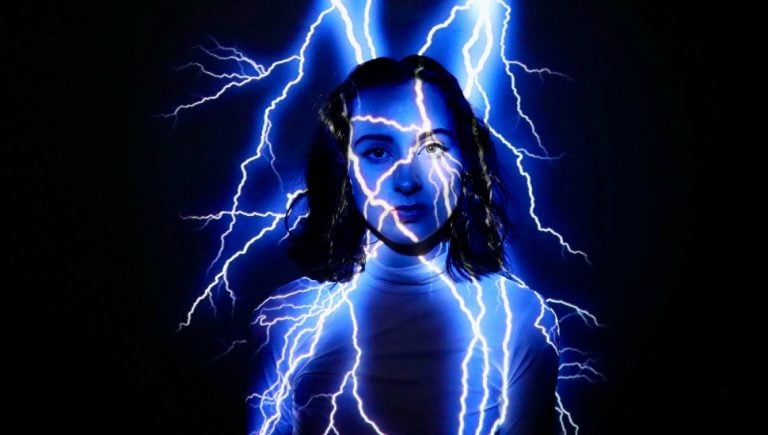Documented in paintings, sculptures, literature and songs, cannabis has been used to enhance creativity for nearly 3,000 years. In a more contemporary setting, as far back as jazz in the 1920s, modern music has a hand-in-hand relationship with cannabis use. The argument from artists is that weed is conducive to creativity, and while those claims may be true for the people making them, there’s definitely another side to that coin.
According to drug research, not only is cannabis use particularly risky for people with preexisting mental health conditions, but also for young people under the age of 25. People’s brains are still developing until the age of 25, so young people are more vulnerable to the effects of mind-altering drugs like cannabis during this time. So, in order to protect those of us that are most at-risk, we need to examine all aspects of cannabis use – including its purported effects on creativity. The first and most important aspect we need to examine is its impact on our mental health.
TRIP AT THE BRAIN
Research shows that people who use cannabis under the age of 25 are more likely to develop mental health issues. This includes anxiety, depression and psychosis, as well as an increased likelihood of experiencing self-harm and suicide. It’s not a big stretch to assume that this can all be counterproductive to an artist’s creativity.
Don’t be mistaken though – this is not for a second implying that people with mental health issues are not also creative, or capable of making awesome art. A quick browse through music, art, literature and film history will tell you that the opposite is true. The point is solely that cannabis use can add pressures that may hamper the flow of creativity.
The bottom line is nobody needs weed in order to be creative. Another quick browse through history will also prove this to be true. So, if weed is not needed, but is potentially good for creativity, what side of the line should young artists walk on? Well, the research suggests that the safest approach, particularly for young budding creatives, is to not use cannabis at all – or at least as little or as infrequently as possible.
LET’S GET METAPHYSICAL
Love Music?
Get your daily dose of metal, rock, indie, pop, and everything else in between.
For the sake of expedience, let’s use two examples of ground-breaking icons in order to pose the same question: Jimi Hendrix and Steve Jobs – legends in their field who entirely changed their career trajectory, to the vast benefit of us all. Both claimed that cannabis use was a large part of their creativity. So here’s the question: did cannabis use lead to their best work, or would that have surfaced regardless? It’s impossible to answer, but it’s a good way of exploring both sides of the debate…
On the one hand, if such behemoth creatives swear that cannabis use aided their creativity, then it’s pretty hard to refute their claims. However, it seems just as plausible that their creative genius was a result of their extraordinary minds, and not the by-product of a drug that produces no such genius in ordinary folk. Punching cones won’t lead you to become the world’s greatest guitar player, or form a trillion-dollar company. Sadly, that’s either in you or it’s not. Practice and hard work will increase your chances of success far more than weed will.
So, wunderkinds aside, is cannabis actually worthwhile for creatives such as songwriters, artists, designers and lateral thinkers? As per usual, philosophy only brings us to more questions than answers, so let’s look at this from a different angle… let’s talk science.
WHAT DOES THE SCIENCE SAY?
Rather than trying to quantify the vague label of ‘creativity’, scientists tend to prefer the term ‘divergent thinking’, which basically measures the number of different solutions a person can come up with for any given problem (AKA ‘thinking outside the box’). Most scientific studies factor in variables such as a person’s genetics, their cannabis use history, their metabolism, and their base-level abilities for divergent thinking.
Additionally, an article published in the Journal Of Consciousness And Cognition (USA) tried to extrapolate the mechanics of creativity as ‘heightened empathy’, ‘lowered inhibitions’, and ‘increased verbal fluency’ – all of which it considered to be crucial. From there, the various studies conducted around the world have tried to measure the effects of cannabis use on all of these components.
A 2014 study published in the National Library Of Medicine (USA) concluded the following: “Cannabis with low potency does not have any impact on creativity, while highly potent cannabis actually impairs divergent thinking.” This would suggest that not only is weed unnecessary for creatives, it may actually going to prevent them from doing their best work.
A separate study conducted by clinical psychologist Gráinne Schafer concluded that non-divergent thinkers received a mild boost from consuming cannabis, while divergent thinkers experienced no enhancement at all. Schafer did however concede that the relationship between creativity and cannabis is not well understood by science… leading us right back to the philosophical debate.
THE CREATIVES’ ARGUMENTS AGAINST WEED
In examining the effects of cannabis on creativity, motivation becomes a key factor. A lot of people who use cannabis find their motivation greatly diminished, which is absolutely not going to aid creativity. Then a vicious cycle occurs where cannabis is consumed in an attempt to stoke creativity, only for it to extinguish motivation, at which point the person consumes more cannabis.
Not all people who smoke weed are unmotivated couch potatoes, of course, but some are. So much so that you’ve probably met a few in your life. Many of the world’s foremost creatives who were once cannabis advocates later stopped using due to the drug’s demotivational effects. Dave Grohl, is a famous example. His one-time bandmate, the great Kurt Cobain, also stated in plain terms, ‘I’m a negative creep when I’m stoned’.
Other artists such as Tyler, The Creator, stopped using due to greening out – the phenomenon where overconsumption leads to dizziness, nausea and panic attacks. Even Jamaican producer extraordinaire Lee ‘Scratch’ Perry gave up smoking weed when he felt that the lung damage it caused him was messing up his ability to sing.
Keep searching and you will find a slew of top-tier creatives who quit weed for good… Lady Gaga, Travis Barker, Joey Bada$$, CeeLo Green, André 3000, Kid Cudi, Yelawolf, Miley Cyrus, George Michael, and about half of Wu Tang Clan. Hell, even Snoop Dogg and Willie Nelson got off the weed for a while there, and that’s saying something!
SO, WHAT’S THE VERDICT?
Where does all this leave us? For creatives – especially young creatives – there seems to be as much danger of adverse effects as positive ones. In which case, is it even worth the risk? Probably not. For whatever potential benefits consuming cannabis may bring, the truth is that your creativity exists inside you already. Weed doesn’t create your art for you, nor does it unlock something that isn’t already there. Does it help? Some creatives say yes, but at what cost?


































